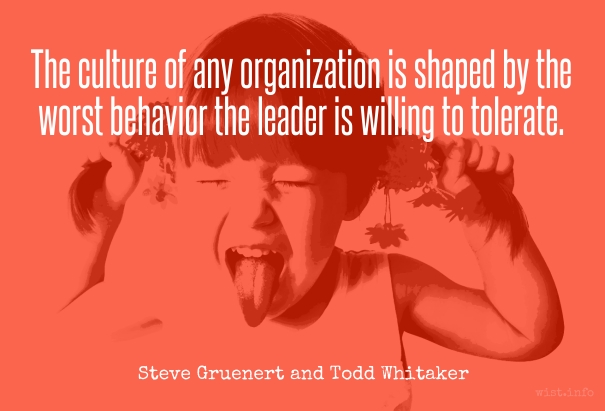Misbehavior and punishment are not opposites that cancel each other; on the contrary, they breed and reinforce each other. Punishment does not deter misconduct. It makes the offender more skillful in escaping detection. When children are punished they resolve to be more careful, not more obedient or responsible.
Haim Ginott (1922-1973) Israeli-American school teacher, child psychologist, psychotherapist [b. Haim Ginzburg]
Between Parent and Child: Revised and Updated Edition, ch. 5 “Discipline” (2003 ed.) [with A. Ginott and H. W. Goddard]
(Source)
Quotations about:
misbehavior
Note not all quotations have been tagged, so Search may find additional quotes on this topic.
There was a little girl,
Who had a little curl,
Right in the middle of her forehead.
When she was good,
She was very good indeed,
But when she was bad she was horrid.Henry Wadsworth Longfellow (1807-1882) American poet
“There Was a Little Girl,” st. 1 (c. 1850)
(Source)
Often printed with "She was very, very good" for the penultimate line, and sometimes with "And when she was bad" (e.g.).
His son, Ernest, says that Longfellow composed the rhyme while walking back and forth with his infant second daughter (Alice Mary, b. 1850). There is some dispute about this, as well as his authorship of the other stanzas of the poem.
I believe in kindness. Also in mischief. Also in singing, especially when singing is not necessarily prescribed.
The culture of any organization is shaped by the worst behavior the leader is willing to tolerate.
(Other Authors and Sources)
Steve Gruenert and Todd Whitaker, School Culture Rewired, ch. 3 (2015)
(Source)
Often misattributed as "Gruenter and Whitaker".
The children now love luxury; they have bad manners, contempt for authority; they show disrespect for elders and love chatter in place of exercise. Children are now tyrants, not the servants of their households. They no longer rise when elders enter the room. They contradict their parents, chatter before company, gobble up dainties at the table, cross their legs, and tyrannize their teachers.
Socrates (c.470-399 BC) Greek philosopher
(Spurious)
Often claimed as a passage from Socrates via Plato, but actually a paraphrase from a synthesis of complaints about youth in antiquity by Kenneth John Freeman, in his 1907 Cambridge dissertation "Schools of Hellas: an Essay on the Practice and Theory of Ancient Greek Education from 600 to 300 BC." See here for more discussion.
All menʼs misfortunes proceed from their aversion to being alone; hence gambling, extravagance, dissipation, wine, women, ignorance, slander, envy, and forgetfulness of what we owe to God and ourselves.
[Tout notre mal vient de ne pouvoir être seuls: de là le jeu, le luxe, la dissipation, le vin, les femmes, l’ignorance, la médisance, l’envie, l’oubli de soi-même et de Dieu.]
Jean de La Bruyère (1645-1696) French essayist, moralist
The Characters [Les Caractères], ch. 11 “Of Mankind [De l’Homme],” § 99 (11.99) (1688) [tr. Van Laun (1885)]
(Source)
(Source (French)). Alternate translations:All men's misfortunes proceed from their inability to be alone, from Gaming, Riot, Extravagance, Wine, Women, Ignorance, Railing, Envy, and forgetting their duty towards God and themselves.
[Bullord ed. (1696)]All our Misfortunes proceed from an Inability to be alone; from thence come Gaming, Riot, Extravagance, Wine, Women, Ignorance, Railing, Envy, and forgetting God and our selves.
[Curll ed. (1713)]All Mens Misfortunes proceed from their Aversion to being alone; hence Gaming, Riot, Extravagance, Wine, Women, Ignorance, Railing, Envy and Forgetfulness of God and themselves.
[Browne ed. (1752)]All our misfortunes proceed from our inability to be alone; hence gaming, dissipation, wine, women, ignorance, slander, envy, neglect of God and ourselves.
[tr. Lee (1903)]All our troubles spring from our inability to endure solitude: hence come gaming, luxury, dissipation, drink, licentiousness, scandal-mongering, envy, the neglect of oneself and of God.
[tr. Stewart (1970)]







